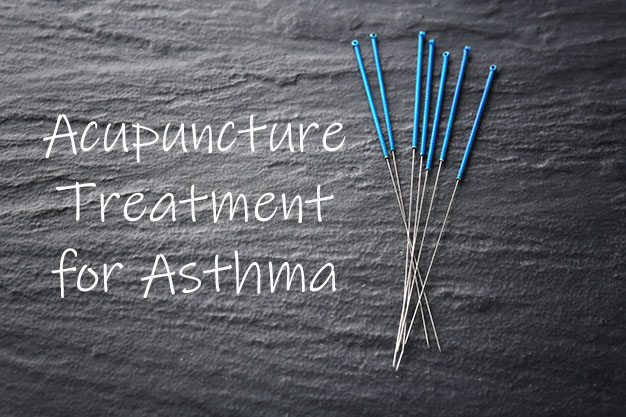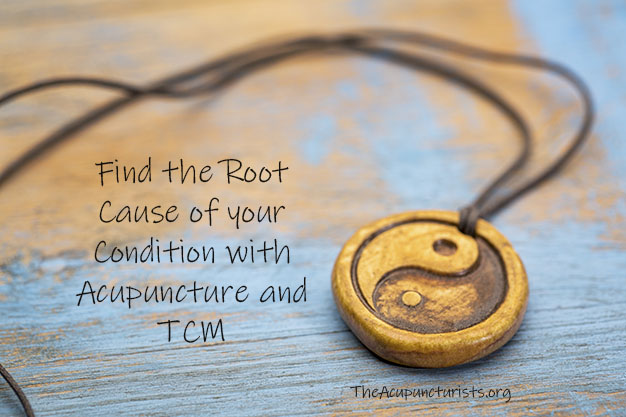
By Cheryl Yelverton MD – Margate, Florida – Although not commonly known in the U.S., Acupuncture as part of Traditional Chinese Medicine (TCM), is capable of treating many medical conditions chronically managed in Western primary care. TCM therapies are usually provided in an adjunctive capacity to allopathic or osteopathic medicine, reinforcing and supporting patients’ natural reparative mechanisms, allowing them to reduce or eliminate their dependence on prescription medication. Acupuncture treatment for asthma has been shown to be highly effective. Actually, asthma is one of the many chronic illnesses readily helped by Traditional Chinese Medicine.
Asthma is a clinical syndrome which affects 8% of adults and 7% of children in the U.S. In Western medical terms, it is a chronic inflammatory disorder of the airways characterized by spasmodic airway constriction in response to a wide variety of triggering factors. Genetic predisposition, atopy and epigenetic mechanisms are implicated in the etiology of the syndrome.4 Viral infections, particularly Rhinovirus mediated infections, air pollution, dietary influences, obesity, occupational and non-occupational chemical exposures and inhaled allergens serve as the predominant triggers for episodic attacks.4
Asthma currently affects 20 million adults ages 18 and over and 5.1 million children under the age of 18.1 Allopathic pharmacological therapies include inhaled, short-acting ß-agonists for acute exacerbations, inhaled corticosteroids and long-acting ß-agonists for maintenance therapy and lifelong mitigation or avoidance of triggers. Studies have shown that withdrawal of inhaled corticosteroids, the foundation of the pharmacological management of chronic asthma, results in the exacerbation of both the symptoms and the deterioration of lung function, indicating that their effect is to suppress Lung hyper responsiveness and not to cure the underlying pathology.4
Severe, uncontrolled asthma may require treatment with oral corticosteroids in addition to maximal doses of inhaled medications, such as steroid and albuterol inhalers, to suppress the inflammatory response. Although the inhaled medications have few systemic side effects, the impact of long-term use of oral corticosteroids can be devastating.

Asthma in relation to Traditional Chinese Medicine
In TCM, asthma can be divided into two diagnostic categories — wheezing and dyspnea (shortness of breath). In reality, the two generally occur together and are treated together. Because it is a chronic condition, we consider it to have both excess and deficiency components, the excess being the manifestation of the wheezing pattern and the deficiency being a reduction in the Qi of the body systems that support respiration, specifically the Lung, the Spleen and the Kidney.
These are references to the Traditional Chinese Medicine descriptions of the body’s primary systems, not their Western counterparts. They are linked in a mutually supportive and corrective cycle of energy balance that among other things, maintains healthy respiration.
The Lungs take in air or the clear Heavenly Qi and move the body’s Qi down through the body and the body’s water throughout the tissues. The Kidneys anchor the Lung Qi allowing us to take a deep breath and eliminate wastewater through urination. The Spleen processes the food we eat, extracting its energy for our body’s use and support.
It also provides the mechanism that prevents too much internal fluid from accumulating and turning into phlegm. One may be born with a deficiency in any or all of these systems or deficiencies may be acquired by repeated illness, incompletely resolved illness or lifestyle excesses that deplete the body’s resources.
Normal Lung functioning is particularly dependent upon the coordination of these 3 systems as defined in Traditional Chinese medical philosophy. The Lungs can only receive air and disperse Qi, air and water as long as they receive support from the Spleen acquired Qi, and maintain a receiving partnership with the anchoring Kidney Qi which grasps and holds the Lung Qi during deep breathing. Lung function is further dependent upon the Spleen’s ability to prevent the accumulation of phlegm in the Lungs.
Wheezing, the manifestation of an asthma attack, is considered to be the result of latent phlegm hiding in the Lungs2, either from an acute illness or from an unresolved prior illness. This phlegm combines with stagnant (unmoving) Lung Qi in response to an external influence, what we would call in Western medicine a trigger — usually an allergen, chemical or bacterial or viral pathogen, or even stress, leading to obstruction of the airways.2
Wheezing can also develop purely from deficiency, wherein the Lungs are unable to respire properly under their own drive, unable to receive the necessary assistance from the Kidneys or because the Spleen is congenitally too weak to prevent the accumulation of phlegm.3
Treatment in TCM separately addresses the active and latent aspects of wheezing. An acute attack is treated by acupuncture and herbal therapies designed to open the airways, eliminate the latent phlegm and restore the normal downward and outward flow of the Lung Qi. This corresponds to the use of bronchodilators to reduce or eliminate airway inflammation and reactivity. It also addresses the underlying pathology of latent phlegm accumulation.
Between attacks, treatment is aimed at strengthening the deficient systems, including and especially the Lungs, making them more functionally resilient and more resistant to manifesting an inflammatory response to insult. Consistent treatment makes the Lungs stronger and less reactive to noxious stimuli, reducing the frequency and intensity of future episodes. This phase of treatment may include dietary modification and herbal formulas, not to eliminate external triggers but to reduce the development and harboring of phlegm.

The Advantage of a Holistic Approach to Asthma
One of the foundational precepts of TCM is the concept of dynamic balance, best perceived as fluctuations around an ideal mean. Imbalance or illness is then defined as large fluctuations around this mean, reflecting dysregulation of the body’s ability to adapt to disruptive stimuli. Reactions become extreme and compensatory instead of modest and adaptive. Acupuncture and herbal medicine restore this adaptive capacity, reducing the intensity of the response and recovering systemic balance.
Strengthening of the deficient systems is accomplished through tonification or building the body’s Qi and blood supply using specific combinations of acupuncture points, administration of herbal formulas and dietary modification adding nourishing foods and eliminating detrimental foods for the affected system or systems.
There is no Western correlate to this aspect of treatment and it does take time to moderate long-standing or severe pathology. Herbal formulas, an extension of dietary therapy, work more quickly and at a deeper level to heal and tonify. In the U.S., they are generally comprised of plants and minerals, well sourced and quality controlled throughout farming, collection and processing. Practitioners who are well educated in herbal medicine will know the pedigree of the herbs and formulas they use in practice.
There are a number of formulas, such as Bu Fei Tang, Shu Gan Ma Huang Tang, Ding Chuan Tang, Yu Ping Feng San, Liu Jun Zi Tang and Jin Gui Shen Qi Wan, which can treat the various patterns that manifest as asthma.3 Some are used to treat the acute phase of an asthma attack. Others address the underlying system deficiencies.
None should be used except under the care of an experienced herbalist. Formulas are designed and meant to be used for specific patterns of illness. They will need to be changed as the body responds to treatment and the patterns resolve and change through the stages of healing.
Under consistent treatment, patients can achieve significant improvement in their asthma symptoms and lung function. Results may take time, months even, as chronic conditions require prolonged treatment to shake the body from its ingrained dysfunctional state.
Treatment efficacy is additive and is best when treatments are performed frequently, at least 1-2 times per week, for several weeks, then gradually reducing the frequency as the body assumes its own well state maintenance. Once the body enters fully into a healthy state, treatments may then be performed periodically and as needed to maintain wellness.
If you’re suffering with asthma let us help. Call today to get started with Dr. Cheryl Yelverton!
References
[1] Centers for Disease Control and Prevention (2020), 2019
National Health Interview Survey data. US. Department of Health & Human Services. HTTPS://www.cdc.gov/asthma/nhis/2019/data.htm
[2] Shi, A. Internal Medicine, Essentials of Chinese Medicine Series, 2003, pp. 19-24, 335-6.
[3] Maclean, W., et al., Clinical Handbook of Internal Medicine, 2nd edition, 2018, pp. 1499-1516.
[4] Jameson, JL, et al., Harrison’s Principles of Internal Medicine, 20th edition, 2018, pp. 1957-69.
